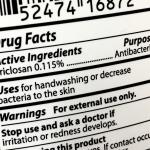You may have heard about the latest internet fad captivating mostly teenagers and dismissed it as a myth. But, yes, apparently filming yourself while snorting an unwrapped condom up your nose and pulling it out through your mouth is a thing.
Other Science News
Direct-to-consumer (DTC) genetic tests, like those sold by 23andMe and others, are increasing in both the number of people using them and the breadth of information that they provide.
Kids and parents, and millions of other fans, return to Major League ballparks this week for the start of the 2018 season, a fun and joyous time for people all over the country.
New scientific discoveries should be held to a high standard. When they happen to be incredibly powerful and have the ability to edit the human genome, they should be held to the highest standard.
I can’t just say happy birthday to this book — after all it’s pretty much anti-birth. But that’s what the book really was — an early harbinger of the many scares put out by this group or that.
Cases of cholera can be found all over the world. That said, they are not typically found in certain places - like Canada.
It's easy to get sick during a flight, right?
With the recycled air and all of those people cramped together - isn't a plane basically a flying petri dish?
A new study shows that a compound found in our tubes of toothpaste may be an effective drug against malaria.
Before the use of emotional support animals became subject to widespread abuse in order to game the system, many would attest that they were serving a helpful, mostly low-profile role for their owners.
And from the same people who bring us increasingly irreproducible results, a new article, published in Psychology Today, purports that the “Placebo Effect is Growing.” In the author’s words, “Over the last several years evidence has been accumulat












